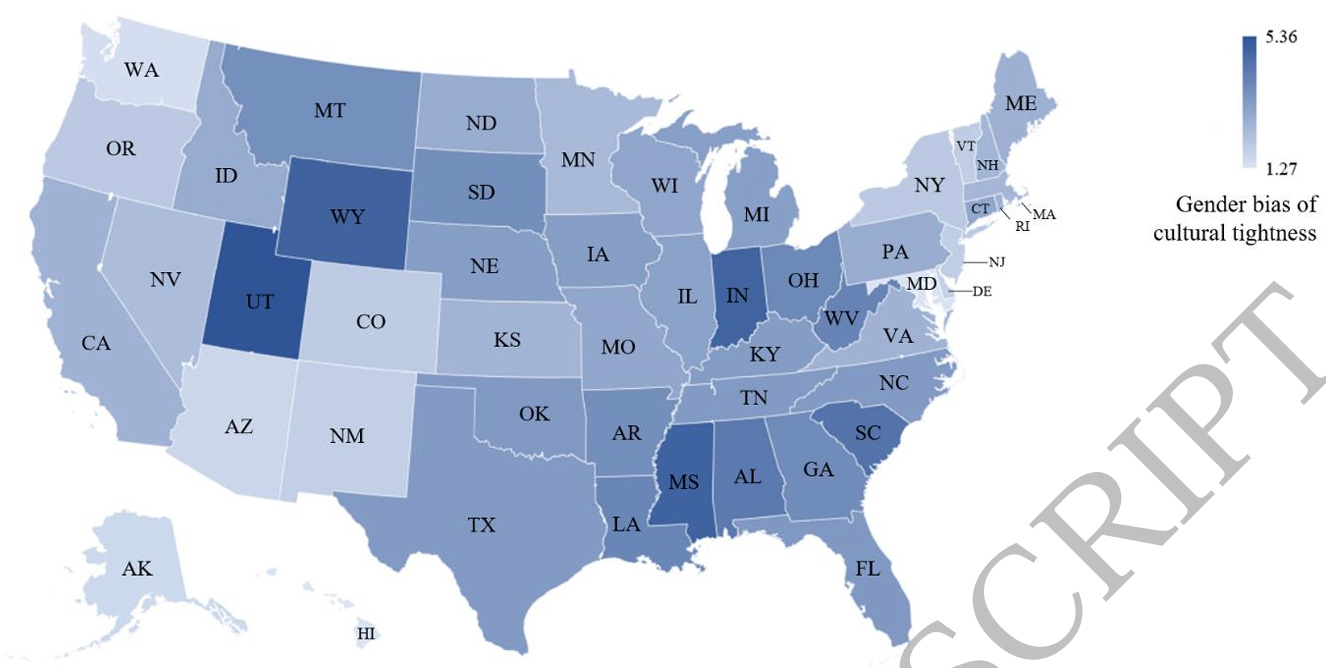Does Patriarchal Policing Suppress Innovation?
Culturally tight societies tend to have fewer innovations. Could asymmetric cultural policing help explain women's lower share of patents and leadership?
Cultural looseness is associated with more innovations and creativity, in general
In some cultures, norm deviance is punished, whereas in others it is perfectly permissible. Over the past two hundred years, America has become ‘culturally looser’. As people come to think more freely, they also seem to become more innovative, expressive and creative. The share of culturally loose terms in the enormous corpus of Google books is associated with a rise in patents, trademarks, films and more individualistic baby-names.
That’s precisely what happened during the Enlightenment. As peers praised innovation, men eagerly experimented and gained prestige. Networks of scientists, entrepreneurs and artisans promoted cultural change by collectively celebrating creativity.

Across the United States, inventors often hail from places that are culturally loose. Let me show you two maps. The first comes from Harrington and Gelfand’s survey of cultural tightness. The second is Alex Bell and colleagues’ map of inventors.

What about gender?
Until now, ‘cultural tightness/ looseness’ have only ever been analysed as societal averages. This omits sexist double standards. For example, Ancient Greek men were highly individualistic (they jousted and debated), while women were silenced subordinates. Young men are free to roam Delhi, but their sisters are tightly surveilled.
Might this asymmetric policing affect men and women’s creativity? In places where women face heightened expectations for conformity, do they act more like societies that are culturally tight?
We already know that patriarchy suppresses women’s performance in mathematics, as well as their cognitive development. But what’s the exact mechanism?
To answer this question, Xin Qin, Roy Chua, Ling Tan, Wanlu Li, and Chen Chen recruited 15,425 participants via Amazon’s Mechanical Turk. They asked whether social norms are more strictly enforced for women.
They find gender bias in cultural tightness:
Varies across the United States. It’s lowest in Maryland; high in Alabama, Mississippi and South Carolina; highest in Utah.
Correlates with religiosity, conservatism, and Republican political dominance.
Tracks men’s share of business and political leadership.
That’s exactly what we’d expect. Religiously conservative states are dominated by men and police women.
Now, here’s where it gets more interesting.. As I was saying, across the world and over time, culturally tight societies tend to gestate fewer trademarks and patents.
Xin Qin and colleagues find the exact same association for gender!
In states where women are more strictly policed, they are less likely to secure utility patents.
Utility patents are only awarded for designs that are totally novel, with very high creativity. Of course, it’s impossible to know whether this is because women themselves are not as creative, or whether gatekeepers are more discriminatory.
Men’s ownership of start-ups is also higher in states with gender biased cultural tightness. That is, men may be more inclined to take risks.
Men’s share of STEM occupations also tracks gender bias.
Correlation clearly isn’t causation. It’s only an association. It would be amazing to see this hypothesis explored over time (in the style of Joshua Jackson and colleagues).
Does asymmetric praise of male individualism uniquely encourage men to take risks, start their own businesses, stand as leaders and file for utility patents?







